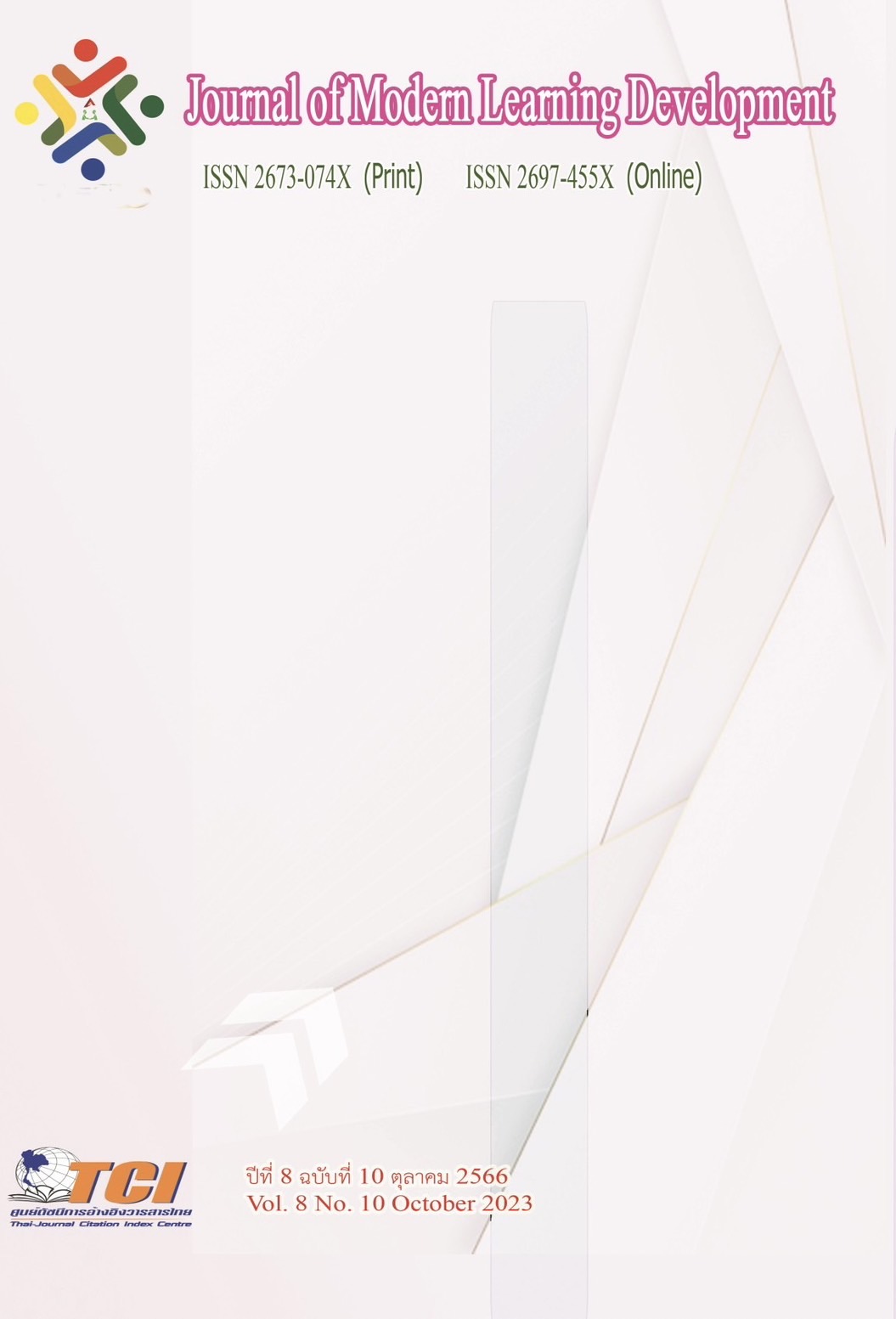Study of Necessities and Guidelines for Digital Leadership Development of school administrators under the municipality of Phrae
Main Article Content
Abstract
This research is a required research to 1) study the necessary needs and 2) Study guidelines to explain the digital leadership of the target group of the disseminated research methodology 2 as follows: 1. Required persons for a sample of 132 interviewers and teachers. The following actions were taken: 1) The sample size was determined by using the Crazy and Morgan tables. The sample group was school administrators and teachers, totaling 132 people. 2) Determining the proportion of the sample group, 16 school administrators and 116 teachers. 3) Simple random sampling by drawing lots to get the full number. according to the predetermined proportion The tool used was a questionnaire. Data were analyzed using content analysis and an enhanced Priority Needs Index (PNI) method. and 2. Guidelines study informant group namely, 10 qualified persons, obtained from a specific selection (purposive selection) by determining the qualifications of qualified persons who have knowledge and ability in school administration Know and understand the context of the administration of municipal educational institutions have leadership There is a work that is evident and/or have at least 10 years of educational institute management experience.The tool used was an interview form. Data analysis uses content analysis.
The research found that
1. The results of the study of the needs for leadership in the digital age of educational administrators of Phrae municipality. In descending order, they are as follows: 1) Development of digital knowledge and skills 2) Development of digital communication 3) Development of digital vision
2. The results of the study on the development of leadership in the digital age of educational administrators of Phrae municipality found that The development approach consists of six approaches: 1) case studies, 2) self-study, 3) study visits, 4) mentoring/mentors, 5) workshops, and 6) on-the-job training.
Article Details
References
ณัฎฐ์ ชาคำมูล. (2555). รูปแบบการพัฒนาภาวะผู้นำเชิงเปลี่ยนผ่านทางสังคมของผู้บริหารสถานศึกษา สังกัดสำนักงานคณะกรรมการการศึกษาขั้นพื้นฐาน. พิษณุโลก: มหาวิทยาลัยนเรศวร.
พัชรา วาณิชวศิน. (2560). การพัฒนาภาวะผู้นำ : จากทฤษฏีสู่แนวปฏิบัติที่ดีและกรณีศึกษา. กรุงเทพมหานคร: ปัญญาชน.
วันชัย ราชวงศ์. (2562). ภาวะผู้นำสถานศึกษายุคดิจิทัล. วารสารสมาคมพัฒนาวิชาชีพการบริหารการศึกษาแห่งประเทศไทย. 1 (4), 25-32.
สุกัญญา แช่มช้อย. (2562). การบริหารสถานศึกษาในยุคดิจิทัล. (พิมพ์ครั้งที่ 2). กรุงเทพมหานคร: จุฬาลงกรณ์มหาวิทยาลัย.
สำนักงานเทศบาลเมืองแพร่ (2565). นโยบายและจุดเน้นการดำเนินงาน สำนักงานเทศบาลเมืองแพร่. ออนไลน์. สืบค้นเมื่อวันที่ 1 ธันวาคม 2565. แหล่งที่มา: https://www.phraecity.go.th/frontpage
สุนทร โคตรบรรเทา. (2560). ภาวะผู้นำในองค์การสถานศึกษา. ฉบับปรับปรุง. กรุงเทพมหานคร: ปัญญาชน.
สุรีรัตน์ รอดพ้นและคณะ. (2564). การศึกษาภาวะผู้นำดิจิทัลของผู้บริหารโรงเรียนประชารัฐ สังกัดสำนักงานเขตพื้นที่การศึกษาประถมศึกษาศรีสะเกษ เขต 1. สกลนคร: มหาวิทยาลัยราชภัฏสกลนคร.
DuBrin, A. J. (2010). Principles of Leadership. 6th ed. Toronto: Houghton Mifflin Company
NASSP. (2013). Breaking Ranks: 10 Skills for Successful School Leaders. online. Access 1 April 2013 From http://www.nassp.org/Content/158/BR_tenskills_exSum.pdf
Rebore, R. W. (2009). Human resources administration in education: A management approach. Boston, MA: Allyn and Bacon-Pearson Education.


